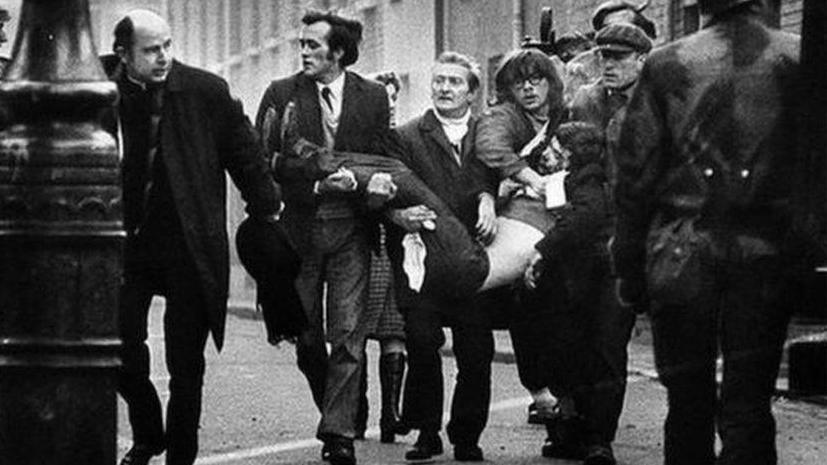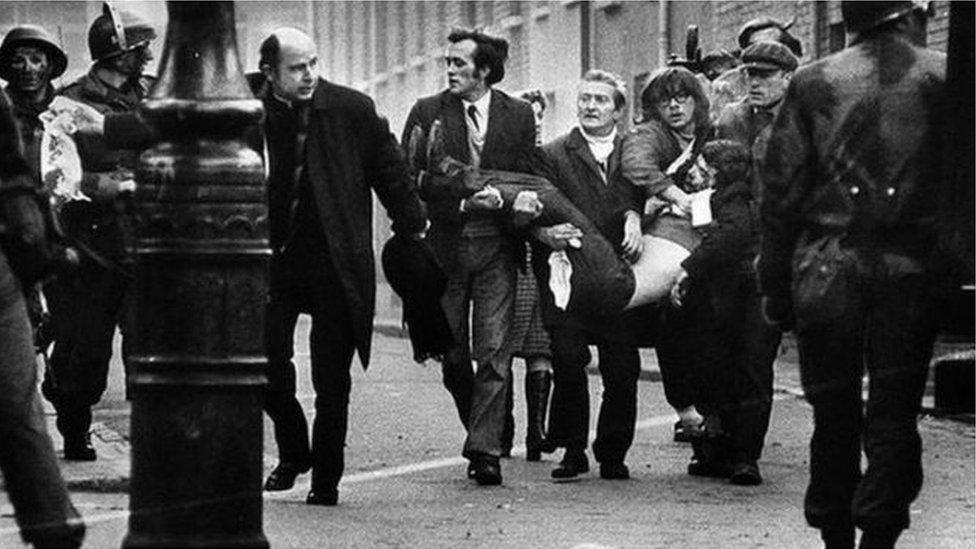Soldier F trial judge to deliver verdict next week
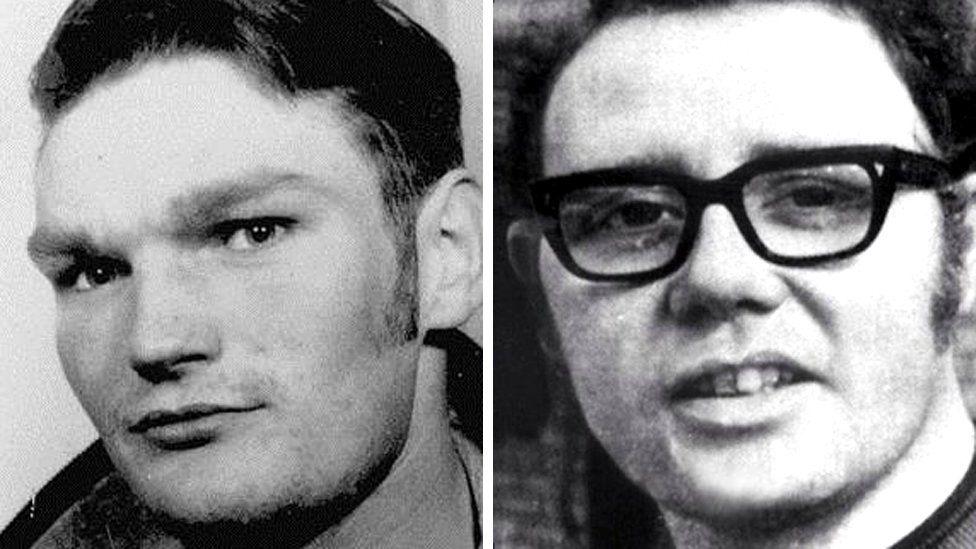
Soldier F is accused of murdering James Wray (left) and William McKinney
- Published
The judge in the trial of the Army veteran Soldier F, accused of murdering two people on Bloody Sunday in Londonderry in January 1972, will deliver his verdict next week.
Soldier F, who denies all charges, has been on trial for five weeks at Belfast Crown Court for the murders of James Wray, 22, and William McKinney, 26.
They were among 13 people who were shot dead by the Parachute Regiment at a civil rights demonstration in the Bogside area of the city. He is further accused of five counts of attempted murder.
The trial has finished, with Judge Patrick Lynch who heard the case saying he will deliver his verdict next Thursday.
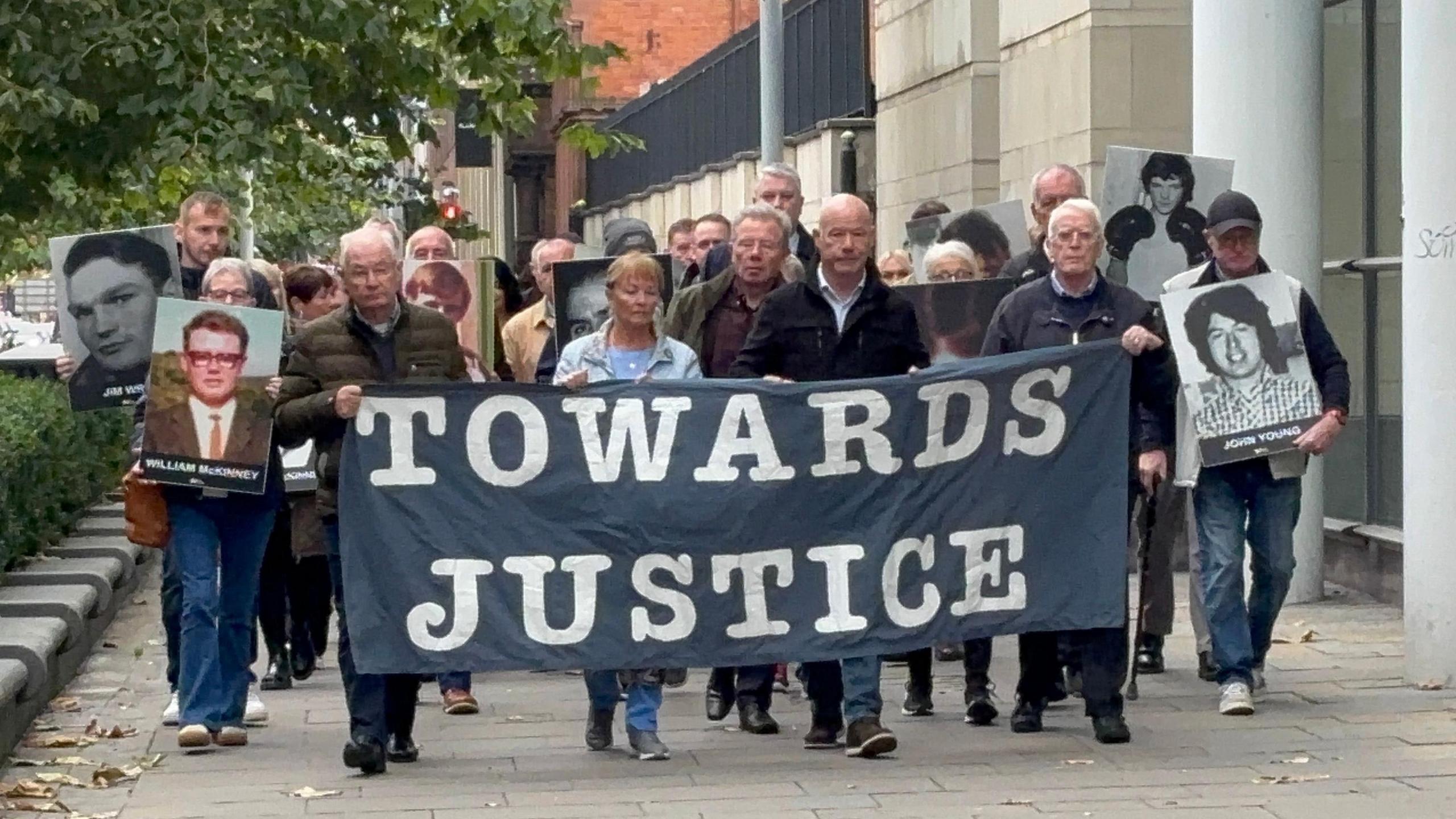
Members of the McKinney and Wray families were among those attending court on Thursday
In court on Thursday, Judge Lynch rejected a bid to have the case against Soldier F dismissed.
The army veteran's lawyers had made an application that Soldier F had no case to answer, arguing key witness evidence was unreliable and could potentially lead to an unsafe conviction.
However, the judge refused the application.
The ruling followed an application from Soldier F's lawyers to have the case dismissed over statements made at the time by Soldier G and Soldier H.
During the trial, the prosecution said the statements of Soldier G, now deceased, and Soldier H, who has refused to testify, are crucial, but the defence has argued that they are "fundamentally flawed".
Judge Lynch said he had listened "very carefully" to two days of legal arguments on the defence application to dismiss.
He said he had reviewed his earlier decision that the statements of Soldier G and Soldier H were admissible in evidence and it stood.
"I decline to direct a verdict of not guilty on this basis," he said.
He then asked the defence to present its case.
Mark Mulholland KC, representing Soldier F, said his client would not be testifying.
Closing remarks
In his closing speech to Judge Lynch, prosecution barrister Louis Mably KC said the court was open to draw inferences from Soldier F's failure to give evidence.
Even allowing for the passage of time, Mr Mably said, it was "implausible he does not have a memory" of whether he had opened fire".
Unarmed men, Mr Mably added, were shot in the back as they ran away, without justification and with the intention to kill.
"That is the ingredients of murder," he said, adding the only question in the case is "whether F was one of the soldiers who participated in that shooting, either as a principal or a secondary participant".
Mr Mulholland, in his closing remarks, said the statements of Soldier G and Soldier H were unreliable, inconsistent and "fundamentally flawed".
There was "no independent supporting evidence" to back up their claims that Soldier F fired shots, Mr Mulholland said.
The prosecution case, he added, relied on the soldier's statements, who by the prosecution's own admission, were "liars and fabricators".
The case was heard by a judge sitting without a jury.
Who is Soldier F?
Soldier F is a former British soldier who served with the Army's Parachute Regiment in Northern Ireland during the Troubles.
He cannot be named due to an interim court order granting his anonymity.
The decision to charge Soldier F was taken by the Public Prosecution Service (PPS) in 2019.
He was one of 18 former soldiers reported to the PPS as a result of a police investigation, which followed the public inquiry into Bloody Sunday conducted by Lord Saville.
But he was the only one charged.
Two years later, the PPS dropped the case after the collapse of the trial of two other veterans who had been accused of a 1972 murder in Belfast.
But the prosecution resumed in 2022 after a legal challenge.
- Published18 February
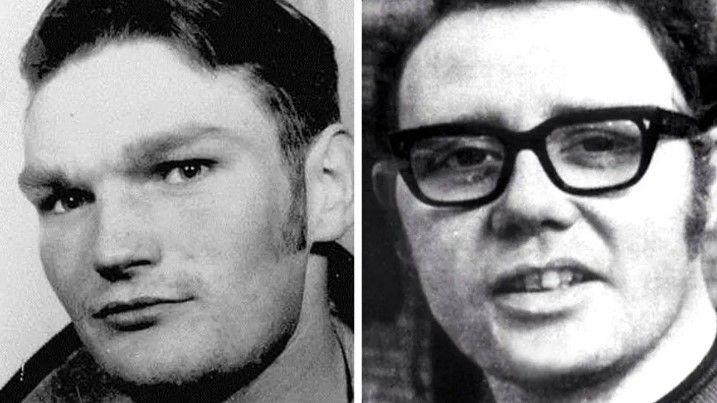
- Published14 June 2024
